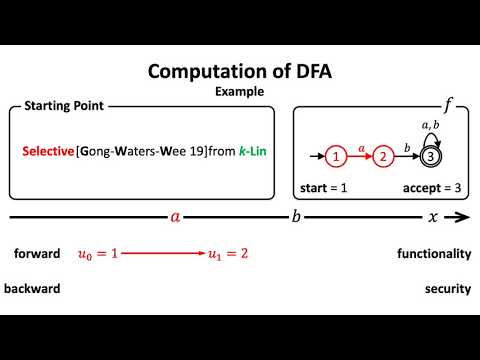CryptoDB
Adaptively Secure ABE for DFA from k-Lin and More
| Authors: |
|
|---|---|
| Download: |
|
| Conference: | EUROCRYPT 2020 |
| Abstract: | In this work, we present: - the first adaptively secure ABE for DFA from the k-Lin assumption in prime-order bilinear groups; this resolves one of open problems posed by Waters [CRYPTO'12]; - the first ABE for NFA from the k-Lin assumption, provided the number of accepting paths is smaller than the order of the underlying group; the scheme achieves selective security; - the first compact adaptively secure ABE (supporting unbounded multi-use of attributes) for branching programs from the k-Lin assumption, which generalizes and simplifies the recent result of Kowalczyk and Wee for boolean formula (NC1) [EUROCRYPT'19]. Our adaptively secure ABE for DFA relies on a new combinatorial mechanism avoiding the exponential security loss in the number of states when naively combining two recent techniques from CRYPTO'19 and EUROCRYPT'19. This requires us to design a selectively secure ABE for NFA; we give a construction which is sufficient for our purpose and of independent interest. Our ABE for branching programs leverages insights from our ABE for DFA. |
Video from EUROCRYPT 2020
BibTeX
@inproceedings{eurocrypt-2020-30203,
title={Adaptively Secure ABE for DFA from k-Lin and More},
booktitle={39th Annual International Conference on the Theory and Applications of Cryptographic Techniques, Zagreb, Croatia, May 10–14, 2020, Proceedings},
series={Lecture Notes in Computer Science},
publisher={Springer},
volume={12105},
doi={10.1007/978-3-030-45727-3_10},
author={Junqing Gong and Hoeteck Wee},
year=2020
}

